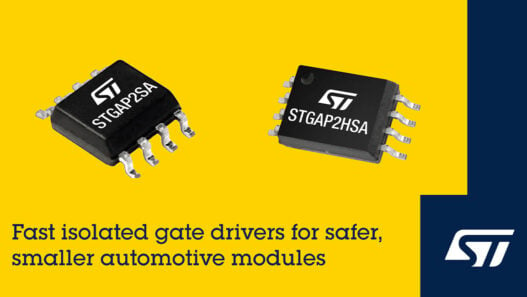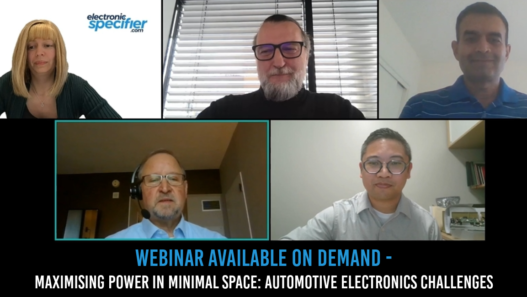In the space of a generation, the world has changed tremendously. We’ve seen computers transform from unwieldly behemoths with 528mb hard drives to sleek units with terabytes of drive space, photovoltaic cells go from research subject to regular domestic installation and a little invention called the internet reshape communication between both humans and machines.
In our book, R30: The past, present and future of power, we take note of the exponential developments in the world around us and explore the topics set to impact – positively and negatively – engineers of all disciplines. It’s available on Amazon’s Kindle store now, but here are some headline points from the book.
More connections means more problems
Since the Second Industrial Revolution, electrification has been increasingly important in industrial processes. More operations have become reliant on automated systems to meet production and efficiency targets, and each of these systems demands a reliable power supply to remain effective.
However, it’s not only a matter of safeguarding these systems from grid-related outages or faults. Design and electrical engineers must ensure these systems do not contribute to poor power quality. This is easier said than done when many industrial systems make use of Variable Speed Drives (VSDs) or Switch-Mode Power Supplies (SMPSs), which introduce Radio-Frequency Interference (RFI) and harmonic currents into the supply.
In addition, many IIoT devices transmit data via communications protocols such as Bluetooth, Zigbee or Z-Wave. These devices must therefore be designed in line with ElectroMagnetic Compatibility (EMC) directives to minimise the risk of electromagnetic interference, which causes irregular electrical performance and accelerated component deterioration.
The move to renewables must be sustainable
The move to renewables isn’t just the move to green energy – it also marks a move to greater decentralisation of power generation, which involves many more rectification processes to convert the generated DC to AC for the grid network. As we know, this can introduce high frequency electrical noise into networks, which can accelerate component wear and lead to unreliable power.
Electrical engineers integrating renewable energy generation projects into power lines need to equip them with suitable components to mitigate harmonic currents, such as power line filters.
Electric transport is a logistical problem
To reduce emissions, an increasing focus has been placed on developing electric vehicles in recent decades. A report by Protolabs identified that the UK’s automotive industry is leading on investment in electric vehicles, but R30 explains that wider infrastructure revolution is necessary.
Part of the sustainable development of electric vehicles is to include electronic components such as braking resistors that allow for more efficient recovery of energy. However, a larger consideration is that of the infrastructure to support charging in a way that doesn’t add excessive strain on electrical networks or introduce swathes of noisy harmonic currents.
More sectors will electrify – and more challenges will arise
Healthcare, transport and even smaller scale industrial processes have adopted a greater degree of electrification in the past 30 years. From our experience with UK businesses, it seems more industry segments will follow suit – and the use of electrical charges in water treatment and purification is one with significant potential.
However, the path to wider electrification may not be smooth sailing. Not only do the aforementioned issues of interference and harmonics need to be addressed, but we may find growing problems with the sourcing of electronic components. This problem has already reared its head in certain sectors in recent years, and it’s one that industry needs to be aware of and plan for – just in case.
REO UK’s book analysing the state and future of power, R30: The past, present and future of power, is available on Kindle now. Alternatively, you can sign up to the company’s mailing list for a copy.







